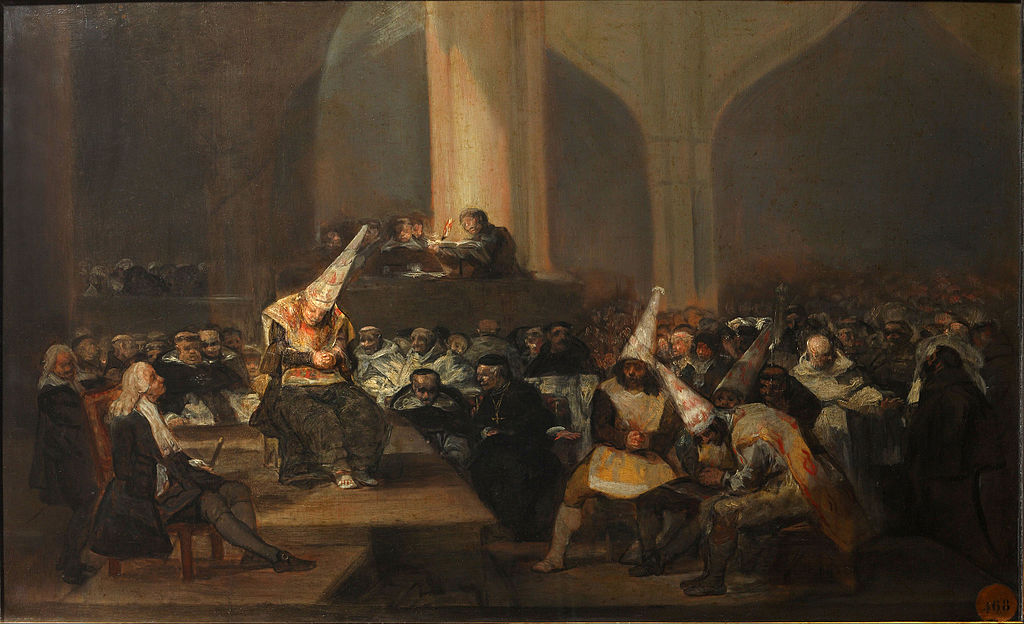This last Christmas during Midnight Mass, Don Fredo Olivero, Rector of the Church of San Rocco in Turin, chose to replace recitation of the Creed with the singing of a song. His action in this regard isn’t that unique; we’ve all become numbed by the predilection of some priests to “wing it” under a personal impulse to be what they euphemistically refer to as “pastoral.” Compared to our culture’s current rejection of such a fundamental proposition as “male and female, He created them,” it seems a small thing. Yet it captures in its essence just what is at the heart of the “dialogue” transpiring these last decades between the Church and our Modernist/Postmodernist culture and the extent to which the presumptions of that culture have penetrated the Church.
Consider the words he offered to explain his action: “Do you know why I’m not going to say the Creed? Because I don’t believe it! As if anyone understands it – but as for myself after many years I’ve realized that it was something I didn’t understand and couldn’t accept. Let’s sing something else that presents the essential things of the faith.”
He doesn’t “believe it?” O.K., fine, that’s his free choice, although he may – with an eye to his own intellectual integrity – want to reassess his chosen vocation.
But he doesn’t “understand it?” Certainly, it is true the Creed proposes a set of mysteries revealed by God, which being mysteries challenge and ultimately defeat the finite intellect attempting to grasp the Infinite. As readers are probably aware, even the greatest intellect of the Church, St. Thomas Aquinas, famously awoke from a dream in which he experienced God and termed all he had written as just a “heap of straw.” Yet on another level, the Creed is so simple even an elementary school student can understand it.
In simple, human language the Creed opens for us a doorway into the Divine. God is Father, Son, and Holy Spirit – One God in Three Divine Persons – a community of Love Who wishes to save us and draw us into His life. The Church is one, holy, catholic and apostolic. Baptism saves us, joins us to the Trinity through the Church, and sets us on course to resurrection and a life of eternal bliss to come. The Creed gives evidence of the Divine activity in the Church, which formulated it such that in a short 224 words comes the complete and thorough answer to the most elemental of questions man can ask, “Why am I here?”

And, frankly, the song Don Olivero offered in place of the Creed, the song the sad man assures us actually “presents the essentials of the faith,” proves the Creed’s origins in a Church that is at once human, yet Divine:
It’s so sweet to feel
how in my heart,
now, unpretentiously,
love is growing up.
It’s so sweet to understand
that I’m no longer alone,
rather than I belong
to a limitless life,
which (the life) lavishly
shines around me.
Gift from His,
from His limitless love.
He gave us the sky,
and the light stars,
our brother sun
our sister moon.
(He gave us)Our mother earth,
with fruits, lawns and flowers,
the fire, the wind,
the air and the pure water,
source of life for His creatures.
Gift from His, from His limitless love.
Gift from His, from His limitless love.
It’s roughly half as long as the Creed yet contains a fraction of the Creed’s content. Basically, the song captures part of the first line, “I believe in God, the Father almighty, maker of heaven and earth, of all things visible. . .”
I’m sure many may find this a beautiful song, a song that moves on an emotional, elemental level. Yet God is more than Creator. He is also Redeemer – and nowhere is Jesus even mentioned. I suppose you could argue that He, as well as the Holy Spirit, are buried in those words, somewhere. Remember, though, it is the sad Don’s argument the song is more “essential,” more understandable than the Creed with which he replaced it. How, exactly, is understanding promoted by something more esoteric? And also missing – Mary for starters, also any mention of other people, e.g. the Church. The song offers a radically individualistic snapshot on a moment of our relationship with God – the phenomenon of consolation – which isn’t, and according to the great spiritual writers, shouldn’t be the focus in our practice of the Faith.
None of this is the songwriter’s fault, he obviously sought to capture one, simple fragment of religious experience. But to say this one, simple fragment constitutes the “essential” element of the Faith, as the sad Don does, is to rob the faithful of the fullness, the richness, of the Faith lovingly crafted for them by God.
Of course, the sad Don’s action was greeted with laughter. A certain spirit of impatience with depth mixed with arrogance, of frivolity mixed with flippancy, has spread throughout Western culture and leached into the Church. We despise the past, hold ourselves above the accumulated wisdom of the ages and even the very Wisdom of God, and in our pride leap thoughtlessly for the momentary. God prepares for us a rich banquet of creedal propositions by which we may come to know Him and many choose, instead, the man-made cotton candy of sentiment. And the sad Don has now taught them they are right to do so.
It would be easy to react to all this with righteous anger. But it’s also sad, a sadness captured in the plea, “Father, forgive them, for they know not what they do.”
*Image: The Inquisition Tribunal by Francisco de Goya, c. 1815 [Real Academia de Bellas Artes de San Fernando, Madrid]














